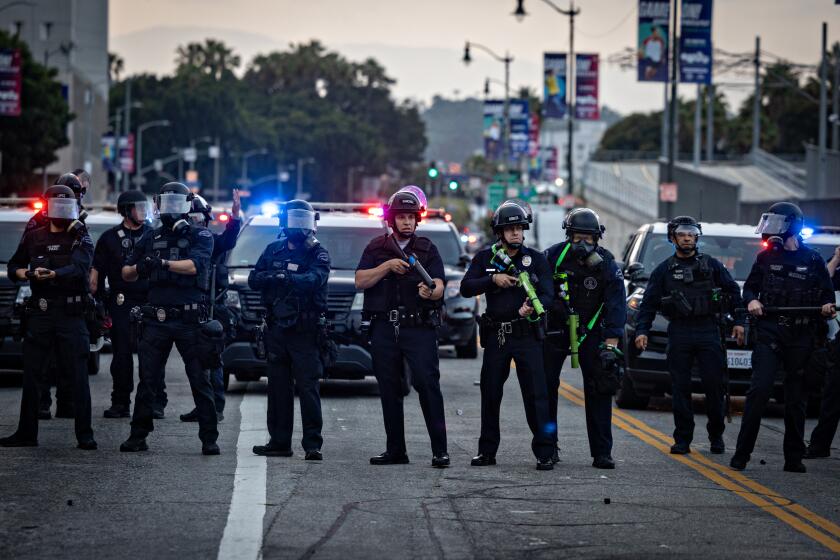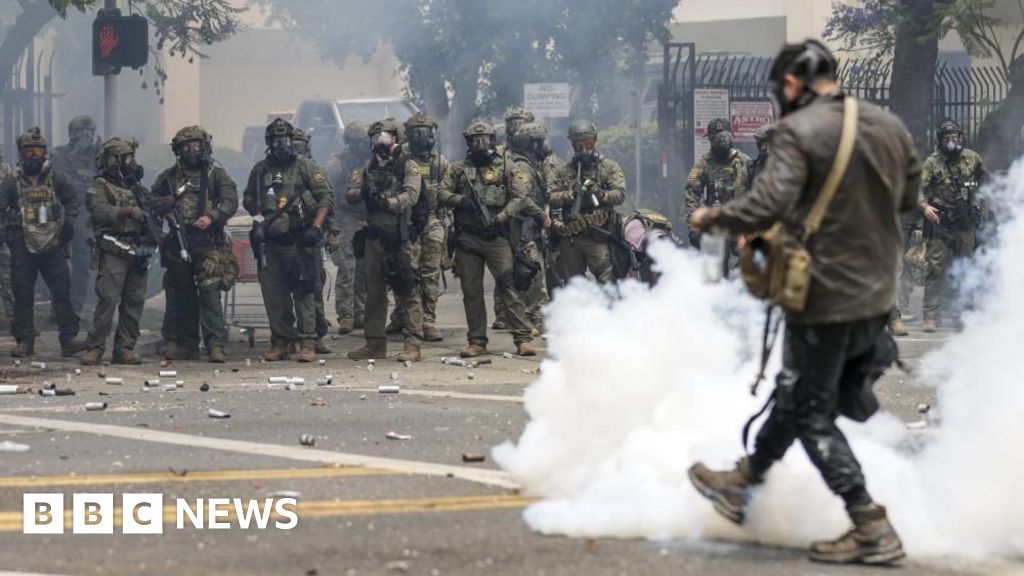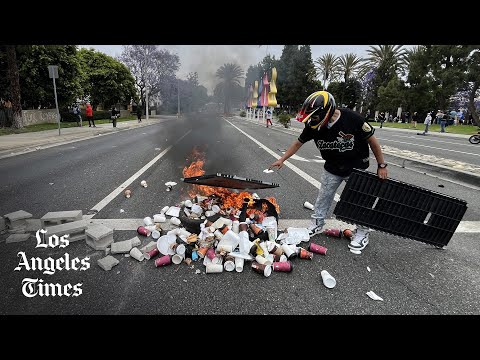## Trump’s Troops Arrive: LA Braces for More Immigration Raids, More Protests Tension hangs heavy in the air over Los Angeles. As the Trump administration sends federal troops to the city, the streets are already echoing with the cries of protesters, voices raised against the looming threat of mass immigration raids. This isn’t just a clash over policy; it’s a battle for the soul of America, a fight for human dignity in the face of fear-mongering and division. What will the arrival of federal forces mean for LA’s immigrant communities? Will it quell the growing unrest, or ignite it further? We’re on the ground, bringing you live updates as the situation unfolds.
Trump’s Unusual Move: Sending in the National Guard

Unionjournalism has learned that President Trump has taken the unusual step of sending in the National Guard to Los Angeles, marking a major escalation in his crackdown on illegal immigration. The move comes amid concerns from some officials in California, who have criticized the decision as “troubling” and “inflammatory.”
The National Guard has been deployed to Los Angeles previously, but it has been during widespread civil unrest, including the upheaval associated with the 2020 protests following the murder of George Floyd, as well as the riots that occurred after the Rodney King verdict in 1992.

The Guard’s Mission: Protecting Public Safety and Law Enforcement
According to Tom Homan, Trump’s “border tsar,” the National Guard are there “not just to protect the law enforcement officers but to protect this community, because people are going to get injured.” Homan has warned that someone could “lose their life” if clashes between protestors and immigration officers continue.
The Guard’s mission is to help protect public safety and law enforcement, and to prevent further violence and unrest in the community.
Concerns Over the Guard’s Deployment: “Troubling” and “Inflammatory”
Jessica Levinson, a law professor at Loyola Law School, noted that when the National Guard was sent to L.A. before, it was because California requested it and the response was coordinated. However, Erwin Chemerinsky, dean of UC Berkeley Law School, has expressed concerns that Trump administration’s move is “troubling” and “inflammatory.”
Chemerinsky believes that the deployment of the National Guard typically happens during “extreme circumstances… Here it seems it was an early response. And I fear that is to send a message to protesters of the willingness of the federal government to use federal troops to quell protests.”
Implications and Analysis
The Insurrection Act of 1807: Authority to Federalize the National Guard
Erwin Chemerinsky, dean of UC Berkeley Law School, explains that Trump has the authority under the Insurrection Act of 1807 to federalize the National Guard units of states to suppress “any insurrection, domestic violence, unlawful combination, or conspiracy” that “so hinders the execution of the laws.”
A Message to Protesters: The Federal Government’s Willingness to Intervene
The deployment of the National Guard sends a clear message to protesters that the federal government is willing to intervene and take control of the situation. This move is seen as a show of force and a warning to protesters to stop their activities.
California Officials’ Criticism of Trump’s Move
California Governor Gavin Newsom has condemned the raids as “cruel” and described the federal government’s takeover of the National Guard as “purposefully inflammatory” and would “only escalate tensions.”
Newsom’s office told the AP news agency that the National Guard is usually called by a state’s governor, but Trump has used a provision that allows him to take control himself.
Practical Aspects and Next Steps
More Protests Expected: Preparing for Long-Term Civil Unrest
The Los Angeles County Sheriff’s Department said in a statement that they are “planning for long-term civil unrest and collaborating with our law enforcement partners.” The department also reported that they had arrested two people on suspicion of assaulting an officer.
Collaboration Between Law Enforcement Agencies
The Los Angeles County Sheriff’s Department is working closely with other law enforcement agencies to prepare for potential long-term civil unrest. The department said that they are collaborating with their law enforcement partners to ensure public safety.
The Human Impact: Injuries, Arrests, and Fear in the Community
The protests have resulted in injuries, arrests, and fear in the community. The Los Angeles County Sheriff’s Department reported that at least one protester was injured, and a Border Patrol official said an agent was hurt.
The department also reported that they had arrested two people on suspicion of assaulting an officer, and that three deputies were struck, causing minor injuries.
Conclusion
Conclusion: The Unsettling Reality of LA’s Immigration Raids
The recent deployment of troops to Los Angeles, a direct result of President Trump’s immigration policies, has sent shockwaves throughout the city. The article has outlined the key developments in the unfolding drama, including the heightened anticipation of more immigration raids, the deployment of federal troops, and the growing concerns among residents and protesters. At the heart of this crisis lies a fundamental question: what kind of nation do we want to be? Do we prioritize the security and economic interests of a select few, or do we stand for justice, equality, and human rights for all?
The significance of this issue cannot be overstated. The deployment of troops and the expected immigration raids have created an atmosphere of fear and uncertainty, particularly among the immigrant community. The long-term implications of these actions are far-reaching, with the potential to erode trust in institutions, exacerbate social tensions, and undermine the fabric of our society. As we move forward, it is essential to recognize that this is not merely a local issue, but a national one, with far-reaching consequences for our collective values and identity.
As the situation in LA continues to unfold, one thing is clear: the future of our nation hangs in the balance. Will we choose to build bridges, to listen to each other, and to find common ground? Or will we continue down a path of division, exclusion, and fear? The answer to this question will shape not only the lives of those directly affected but also the very soul of our nation. The choice is ours, and the time to act is now.
